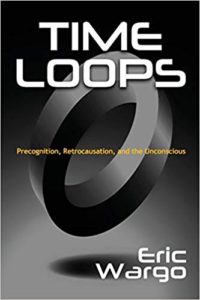“There is no center” (The Parallax View Pt. 2)
Parallax is really not new. In its social implications at least, it’s just a restating of the postmodernist truism: “There is no center.” That was always the motto, right? But we – or at least, I – always took that to mean a lack of a privileged social viewpoint, a lack of some Archimedian position from which to describe reality. But I now see that in that, my grad-school understanding was actually “just” the modernist “Truth is relative.”
But there’s another way in which the center is lacking, a more troubling way, and this is what Zizek means. There is no overlap, no point or touchstone of shared reality, some place in which we all agree and in which we are all the same.
This “center” I am trying to describe is a much vaguer place. But it is also, I am beginning to think, something we all need to believe in in order to live together, love one another, and so on. Without examining my belief in this center, I go through life trusting that, even though you and I are different, come from different places and have different experiences and agendas, there is some part of us that we share, and that we share with everybody else. A middle point that we all agree on. A compromise between/among us all. Such a place somehow guarantees and anchors our reality with other humans.
As I said, it is a vague idea, but if you examine yourself I think you will find it as an article of your private faith…
(I am thinking here of the overlapping circles on a Mastercard.)
To say “there is no center” is to give voice to the self-deception inherent in our belief in such a place. There is no “place between.” There is just you, and I, and him, and her, and so on, and no way in which we actually overlap, no point between us that guarantees our social relations or that makes some shared understanding possible. Our experiences of sharing and communion are really “just” neural firings in separate brains, disconnected in space and time.
We can’t experience other people’s happiness. I can’t necessarily “get” why a certain thing might make you happy, or sad, or angry. I am not you. I am not in your shoes.
This nonoverlapping of people is, I think, what some Marxists call “antagonism.”
Without a “place between,” what do we do? What do we do to maintain our faith in a center that doesn’t exist?




A late Hello from a another fan of Zizek’s ..
One scientific question about theoretical concepts is wheter you can put them productively to work or not. So my answer to your post comes in terms of Zizek’s philosophy.
Isn’t the answer to “what do we do?” according to Zizek is “what do *I* (you) do next?”
As Zizek pointed out the postmodern problem is that of the disappearance of the “I/Ego” due to the demise of the “symbolic effienciency”. He endorses the “true” *act*, which is “the worst” against those forces which force their “I” (eye?) – or lack of it – upon you.
For example, another totally different answer to your post would be to analyze it. That would go as follows: I would then address your post as an “truth event” of yours. In “The ticklish Subject” there are 5 possible mindsets of coping with a truth event mentioned: 1. the pretending Master 2. the doubtful Hysteric 3. the perverse University 4. the psychotic Mystic 5. the productive Analyst. Zizek favours (with Lacan) “the Analyst” for its productive stance. But to give the discussion a new twist: the notion of “productivity” resembles in an uncanny way the condition of Zizeks heavily criticized spectre of global capitalism.
Is our philosophical endeavour ultimately the drive “to get more”, to get our indispensable surplus-enjoyment ? Uneasy as it’s seems I like the emerging appearance of a “true tautology” here, a tautology rotating around the void of lack / object petit a. Thinking negativly with Lacan and Marx Zizek’s philosophy itself is a product designed for male audiences being sold to them ..
*** I think this second anwser leaves us only with mere desperation (our attempts to get hold of reality reveal us as buying customers), while the first answer (ask yourself “what will *I* (you) do ?”) reminds of a freedom to do something you have the heart to identifiy with.
My (hysteric) thesis is: by re-affirming one’s love to onself one might inspire the other to ask himself what will he/she do next.
And will we believe it? I think it ultimately comes down to a question of belief.